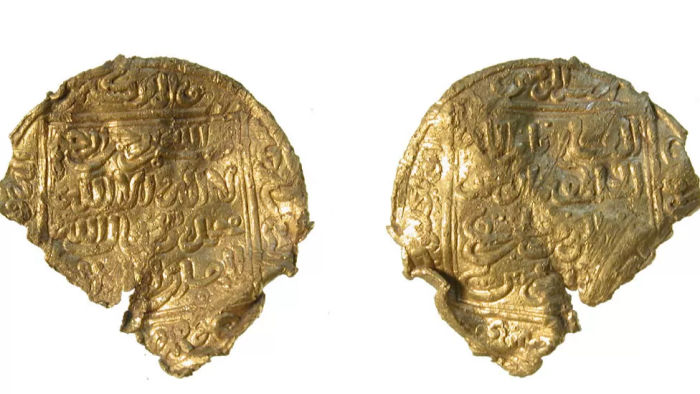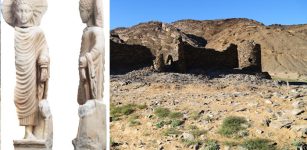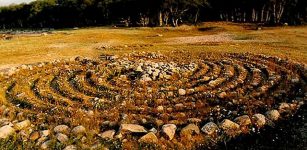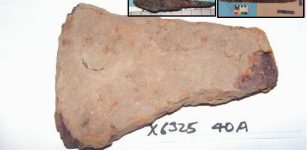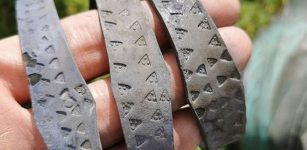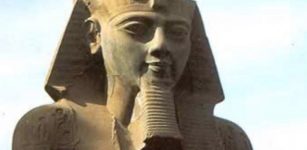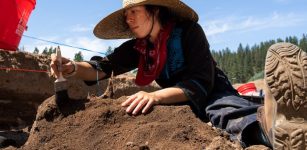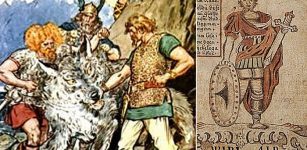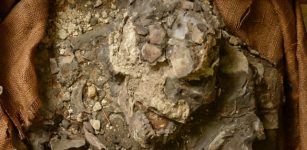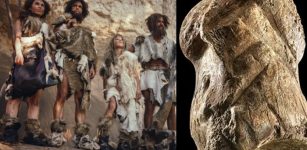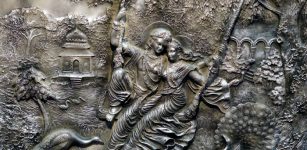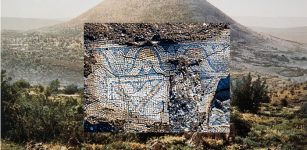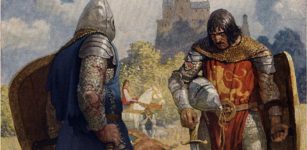Vikings May Have Made Imitation Gold Dinar Found In Morston, Norfolk – Expert Says
Jan Bartek - AncientPages.com - A spectacular gold coin was discovered by a metal detectorist near Morston, Norfolk, in April 2021. It has been declared treasure by a coroner.
According to Professor of Early Medieval English History at Cambridge University, Rory Naismith, it is possible the Vikings made the coin.
The imitation is "a bit ropey" and seems to be made by someone who was unable to get the Arabic right, Rory Naismith said. Credit: Andrew Williams/Norfolk County Council
"The Vikings had a lot of contact with the Muslim world," so it was "plausible" they could have struck imitation dinars. It's very unusual to find such a thing, and it's completely unique," Professor Naismith told the BBC.
The imitation "coin" also has a hole in the middle, indicating that it may have been designed as jewelry.
Professor Naismith said some gold dinars from the Anglo-Saxon period have been found in England, probably arriving via Italy.
"While there are few other imitations that we know of, this one is a bit ropey," he said.
As a result, what should be Arabic script has "degenerated into a series of lines and is completely illegible".
The coin was "most likely" struck in the second half of the 9th Century, and this put it into the period when the Vikings were active, Professor Naismith explained.
Contact between the Viking and Muslim worlds has been long-established by historical accounts and many dinars have been found in Scandinavian graves.
"So to my mind, there is a very plausible connection" that the coin was a Viking imitation, said Prof Naismith.
However, with no evidence that Arabic traders came to England then, he believes the coin was struck in Scandinavia before being lost in Norfolk.
Credit: Andrew Williams/Norfolk County Council
The county was part of the wider area of England ruled under Scandinavian law and customs, known as the Danelaw, which was established following Anglo-Saxon king Alfred the Great's AD878 defeat of the Viking Great Army.
The Vikings had made Thetford in Norfolk one of its winter camps.
Prof Naismith said: "The coin is a spectacular find, and I hope it's acquired by a museum."
Written by Jan Bartek - AncientPages.com Staff Writer



